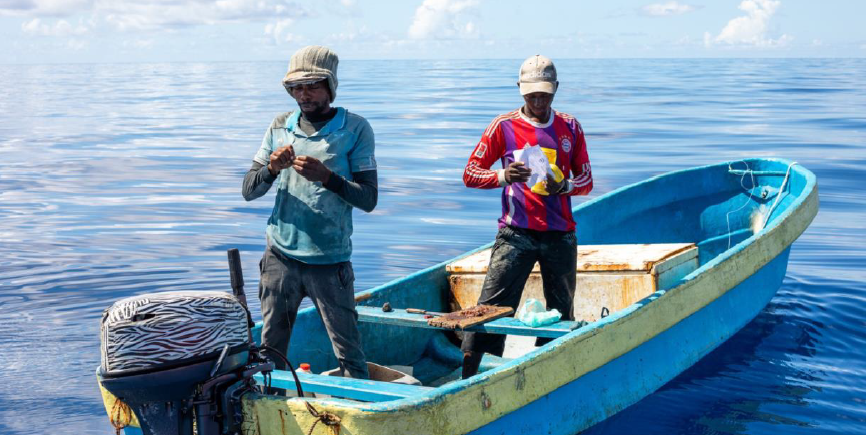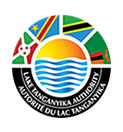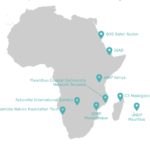Launch of the Regional Observatory for Adaptation to Climate Change

Comorian fishermen using a motorboat to get a fair catch beyond the lagoons.
20 February 2024, Flic-en-Flac – Mauritius – In a concerted effort to address the alarming effects of climate change on marine ecosystems, a Regional Observatory dedicated to its impact on the fisheries sector in the South West Indian Ocean has been officially launched. This event marks a crucial step in regional cooperation aimed at understanding and mitigating the adverse impacts of climate change on fisheries and coastal communities in the region.
Initiated by the Indian Ocean Commission (IOC) in partnership with the Mauritius Oceanographic Institute (MOI), the observatory now brings together seven countries, including the Comoros, France/Réunion, Kenya, Madagascar, Mauritius, the Seychelles and Tanzania. This initiative, launched as part of the ECOFISH programme, which is funded and promoted by the European Union, aims to ensure the sustainable management of fishery resources that are essential to the economies of the countries of the south-west Indian Ocean.
Recent observations point to the devastating effects of global warming on the populations of countries in the region. According to the Economic Commission for Africa, the losses and damage caused by climate change on the continent will amount to between 290 and 440 billion dollars between 2020 and 2030. However, Oskar Benedikt, EU Ambassador to Mauritius and the Republic of Seychelles, added: ‘Despite the progress made, there are still gaps in our knowledge of adaptation, while many sectors are already feeling the full brunt of the considerable repercussions of climate change.
The Regional Observatory dedicated to the impact of climate change on the fisheries sector will therefore serve as a platform for observing, collecting, analysing and disseminating crucial data to enable the South-West Indian Ocean region to identify and adopt the best course of action to mitigate this scourge. ‘By providing reliable scientific data and accurate information on the trends and impacts of climate change on our marine resources, this observatory will enable us to take informed decisions and proactive measures on fisheries,’ said Vêlayoudom Marimoutou, Secretary General of the IOC.
And with good reason: the western basin of the Indian Ocean is warming faster than other oceans, which will have an impact on its future productivity and therefore on the livelihoods and economic security of those who depend on the sea for their livelihood. In a country like Comoros, for example, the fishing sector accounts for 12% of GDP and employs over 7% of the working population.
Concluding the launch ceremony, Sudheer Maudhoo, Minister for the Blue Economy, Marine Resources, Fisheries and Maritime Transport of the Republic of Mauritius, ‘hopes that this Climate Observatory project of the Indian Ocean Commission and the Mauritius Institute of Oceanography will not only be a catalyst for scientific advances and environmental protection, but also an inspiration for future generations’.






